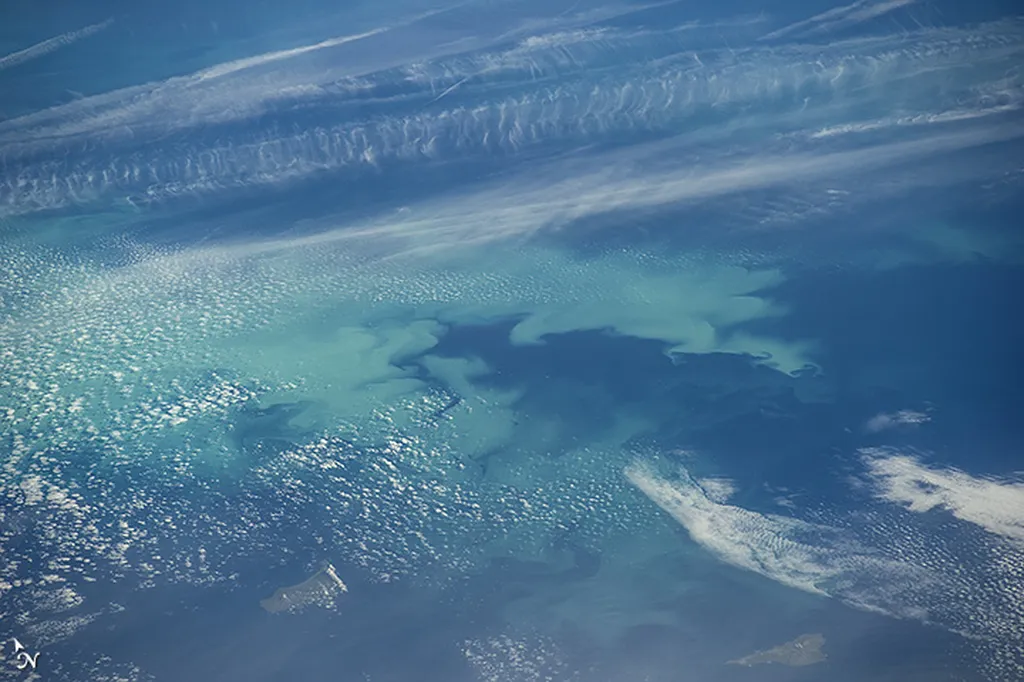The deep sea is full of surprises, but the Karambusel field off Papua New Guinea is something else entirely. This isn’t just another hydrothermal vent or methane seep—it’s a hybrid system where both processes happen side by side, creating a unique ecosystem that scientists are only beginning to understand. The discovery, made by a team led by GEOMAR Helmholtz Centre for Ocean Research Kiel, challenges what we thought we knew about deep-sea chemistry and biology.
The Karambusel field lies at around 1,300 meters depth on the flank of Conical Seamount, where thick sediment layers rich in organic material sit beneath volcanic rock. As magma rises, it heats these layers, generating methane and other hydrocarbons while also driving mineral-rich fluids upward. The result? Hot hydrothermal fluids and cooler methane-rich gases bubbling up from the seabed just centimeters apart. This close proximity creates a hybrid environment that supports an astonishing diversity of life, including mussels, tube worms, shrimp, amphipods, and purple sea cucumbers.
The discovery was a stroke of luck. Previous expeditions had hinted at minor hydrothermal activity, but it wasn’t until the team deployed the ROV Kiel 6000 that the full picture emerged. “It was a real surprise,” says Dr. Philipp Brandl, a marine geologist at GEOMAR. “Especially for those of us who had worked in this area multiple times.” The abundance of mussels led the researchers, along with local observer Stanis Konabe from the University of Papua New Guinea, to name the field ‘Karambusel’—Tok Pisin for ‘mussel.’
The implications of this discovery are profound. The methane at Karambusel is highly concentrated, exceeding 80%, while the hot fluids carry metals like gold and silver, along with elements such as arsenic, antimony, and mercury. This mix of chemicals creates unique conditions that support a thriving ecosystem. But this treasure trove of biodiversity is under threat. Mining is already active in the region, with waste and residues being discharged into the sea. Exploration licenses for seabed minerals and hydrocarbons further jeopardize this fragile habitat.
The researchers are calling for urgent action. Further study, marine spatial planning, and effective protection measures are needed to preserve this extraordinary ecosystem before economic interests destroy it. “We have discovered an unexpected treasure trove of biodiversity in the Karambusel field that needs to be protected before economic interests destroy it,” Brandl emphasizes.
This discovery underscores the importance of deep-sea exploration. Every dive into the unknown reveals new insights, challenging our assumptions and highlighting the need for conservation. The Karambusel field is a reminder that the ocean still holds mysteries—and that protecting these ecosystems is not just a scientific priority but a moral imperative.

